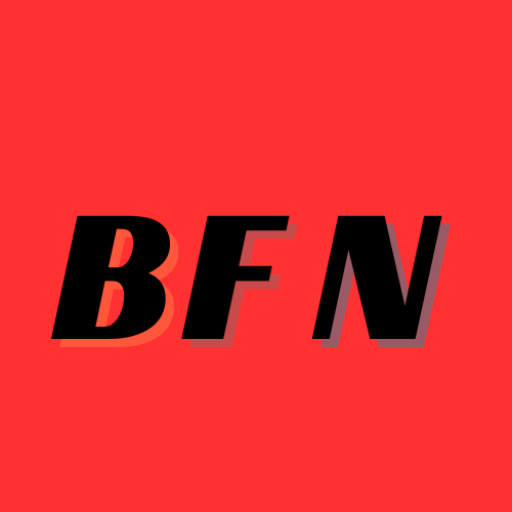Introduction: Turning Your Love for Books into Income
For many, reading is a beloved pastime—a way to escape, learn, and experience new worlds. But what if you could turn this passion into a source of income? Imagine getting paid to do what you love: reading books. Whether you’re a fast reader or someone who enjoys savoring each page, there are opportunities to monetize your reading habits. In this guide, we’ll explore various ways to get paid to read books, from reviewing and editing to more niche opportunities that you might not have considered.
1. Book Reviewing: Sharing Your Insights
What Is Book Reviewing?
Book reviewing involves reading books and providing an analysis or critique of the content, style, and overall impact. Reviews are often published in magazines, newspapers, blogs, or specialized websites like Goodreads. As a reviewer, your job is to help potential readers decide whether a book is worth their time. get paid to read books
How to Get Started
To become a book reviewer, start by building a portfolio of reviews. You can create a blog or contribute to existing platforms where book lovers gather. Networking with authors, publishers, and other reviewers can also open doors. Over time, as your reputation grows, you might be approached by publishers to review books before they are released. get paid to read books
Platforms That Pay for Book Reviews
- Kirkus Media: Known for its critical reviews, Kirkus Media hires freelance reviewers to evaluate both indie and mainstream titles.
- Online Book Club: This platform pays for detailed reviews of books, with the added perk of receiving free copies. get paid to read books
- Reedsy Discovery: Reviewers on Reedsy can earn tips from readers who appreciate their insights, providing a flexible way to monetize your reviews.
2. Editorial Services: Shaping the Final Product
The Role of an Editor
Editors play a crucial role in the book publishing process. They work on manuscripts to improve clarity, coherence, and overall quality. This can involve anything from correcting grammar and punctuation to restructuring entire sections of a book. get paid to read books
Different Types of Editing
- Copyediting: Focuses on grammar, spelling, and punctuation errors.
- Developmental Editing: Involves working closely with authors to develop the plot, characters, and structure of the book.
- Proofreading: The final step before publication, focusing on minor errors and inconsistencies. get paid to read books
How to Become a Freelance Editor
Becoming an editor often requires a background in English, journalism, or a related field. However, a passion for books and attention to detail can also pave the way. Starting as a proofreader can be a good entry point. Building a portfolio and gaining experience through internships or freelancing on platforms like Upwork or Fiverr can help you establish credibility. get paid to read books
Earning Potential
Freelance editors can earn anywhere from $20 to $100 per hour, depending on their experience and the complexity of the work. Some editors also charge per word or page, especially for larger projects. get paid to read books
3. Beta Reading: Providing Early Feedback
What Is Beta Reading?
Beta readers are the first to read a book before it’s published. They provide feedback on everything from plot holes to character development. Unlike professional editors, beta readers approach the book from a reader’s perspective, offering valuable insights on what works and what doesn’t. get paid to read books
How to Get Involved
Authors often seek beta readers through writing communities, social media, or dedicated websites. To start, you can offer your services for free or at a low cost to build your reputation. As you gain experience and authors recognize the value of your feedback, you can start charging for your services. get paid to read books
Platforms for Beta Readers
- BetaReader.io: Connects beta readers with authors who need feedback on their manuscripts.
- BookSprout: A platform where authors can find beta readers, reviewers, and other early readers for their books.
4. Audiobook Narration: Bringing Stories to Life
The Growing Demand for Audiobooks
With the rise of audiobooks, there’s an increasing demand for skilled narrators. Audiobook narration involves reading and recording books for listeners, requiring clear diction, voice modulation, and sometimes the ability to perform different character voices. get paid to read books
Skills Required
To succeed as an audiobook narrator, you need a strong, pleasant voice, the ability to read smoothly, and some technical skills for recording and editing audio. Acting experience can be a plus, especially for fiction audiobooks where characters need distinct voices. get paid to read books
How to Start Narrating Audiobooks
Begin by creating a demo reel showcasing your voice and range. Websites like ACX (Audiobook Creation Exchange) allow you to audition for audiobook projects. As you build a portfolio, you can also seek out clients directly or work with agencies that specialize in audiobook production. get paid to read books
Potential Earnings
Audiobook narrators can earn royalties based on sales or a flat fee per finished hour of audio. Rates typically range from $50 to $400 per finished hour, depending on the project and narrator’s experience.
5. Translating Books: Bridging Language Barriers
The Role of a Translator
Book translation is a specialized field where fluency in multiple languages is essential. Translators adapt books from one language to another, ensuring that the essence, tone, and style of the original work are preserved. get paid to read books
Requirements for Translators
To become a translator, you must be fluent in at least two languages and have a deep understanding of cultural nuances. A background in literature or linguistics is often beneficial. Specialized knowledge in certain genres, such as technical or legal texts, can also increase your marketability. get paid to read books
How to Find Translation Work
Start by networking with publishers, authors, and literary agents who might need translation services. Online platforms like ProZ and TranslatorsCafé also offer opportunities for freelance translators. Building a portfolio and gaining certification through organizations like the American Translators Association can help you stand out. get paid to read books
Earnings for Translators
Translators can charge per word, page, or project, with rates varying based on language pairs and complexity. Experienced translators can earn between $0.08 to $0.30 per word, making it a potentially lucrative field for those with the right skills.
6. Book Blogging: Sharing Your Literary Journey
What Is Book Blogging?
Book blogging involves writing about books, sharing reviews, recommendations, author interviews, and more. A successful book blog can attract a loyal following, leading to opportunities for monetization through ads, sponsored posts, and affiliate marketing.
How to Start a Book Blog
Starting a book blog requires selecting a niche or theme—such as a specific genre, author interviews, or book lists—that resonates with your audience. Choose a blogging platform like WordPress or Blogger, and begin by posting regularly. Engaging with your readers through comments and social media can help build a community around your blog.
Monetization Strategies
- Affiliate Marketing: Earn a commission by promoting books or book-related products through affiliate links.
- Sponsored Posts: Get paid by authors or publishers to feature their books on your blog.
- Ad Revenue: Use platforms like Google AdSense to display ads on your blog and earn money based on clicks or impressions.
Building an Audience
To grow your audience, optimize your blog for search engines (SEO), share your posts on social media, and collaborate with other bloggers. Consistency is key, so make sure to update your blog regularly with fresh content.
7. Literary Agent: Representing Authors
The Role of a Literary Agent
Literary agents represent authors in negotiations with publishers. They help authors refine their manuscripts, pitch them to publishers, and secure favorable publishing deals. This role requires a deep understanding of the publishing industry, strong negotiation skills, and a passion for discovering new talent.
How to Become a Literary Agent
Most literary agents start with a background in publishing, either in editorial roles or as assistant agents. Networking is crucial in this field, as relationships with publishers and authors can significantly impact your success. Interning at a literary agency or working as an assistant can provide valuable experience.
Earnings and Commission
Literary agents typically earn a commission of 10% to 15% on the deals they negotiate. Successful agents can earn a substantial income, especially if they represent bestselling authors or secure lucrative deals for their clients.
8. Reading for Research: Academic and Professional Opportunities
Reading as a Research Assistant
In academic and professional settings, research assistants are often tasked with reading and summarizing large volumes of material. This could involve analyzing historical texts, legal documents, or scientific papers, depending on the field.
How to Become a Research Reader
Research positions often require a background in the relevant field, whether it’s history, law, science, or another area. Strong analytical skills and the ability to synthesize complex information are essential. Positions can be found through universities, research institutions, or specialized research firms.
Compensation for Research Reading
Research assistants are typically paid an hourly wage or a salary, depending on the nature of the position. Rates can vary widely, but experienced research readers can earn competitive salaries, especially in specialized fields.
Conclusion: Your Path to Getting Paid to Read
The idea of getting paid to read books may seem too good to be true, but as this guide shows, there are numerous opportunities to turn your passion into income. Whether you’re interested in reviewing, editing, translating, or even narrating audiobooks, the key is to start small, build your skills, and grow your network. With dedication and a love for literature, you can create a fulfilling career that allows you to do what you love—reading books.



